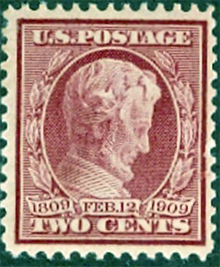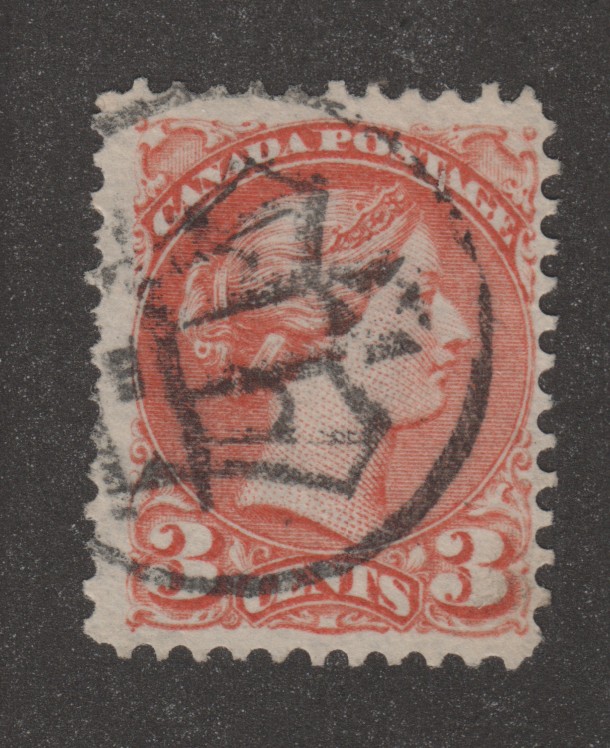
Discussion - Member to Member Sales - Research Center

Discussion - Member to Member Sales - Research Center

Some of the R13 all-over (unlisted in Scott) DTs are VERY scarce.
See my plate varieties reference page here:
http://www.revenue-collector.com/varieties/
Not all shown are from my collection. Several plate variety collectors have contributed images for the reference. Since you seem to be interested in plate varieties, if you have any images of items that don't currently have images, that would be greatly appreciated.
-Dan

Login to Like
this post
The major beefs I have with Scott are (1) their disorganization and haphazard/inconsistent treatment of certain areas, and (2) their reluctance to actually fix anything, even when disparities are pointed out or assistance is offered.
The 1st-3rd issue revenue section is a complete mess. It needs a complete overhaul. Part of the problem is that Amos does not use a database; all their work is done manually on paper, so things easily get missed.
I have meticulously tracked values of the 1st-3rd issue revenues over the last decade, and extended the analysis back decades before using certain catalogs at decent intervals. When Amos changes a stamp's value, they frequently fail to also revise the price for pairs, blocks, or plate varieties. What you end up with is premiums for multiples and varieties decreasing over time because of this. In some cases the omissions are so egregious that prices for pairs are the same as or less than singles. Inexcusable.
Here is what I proposed to them in 2012, and reiterated in 2014 since all I got was a brush-off. I ran the idea past Richard Friedberg and he thought it was a great idea.
"I had sent you some commentary back in 2012 regarding my opinion that the treatment of multiples and plate varieties with respect to 1st-3rd issue revenues NEEDS to change. When updates occur to single stamp prices, frequently the prices for multiples and varieties are NOT updated accordingly, which then over the course of time throws the relative pricing completely out of whack.
For example, this morning I discovered that the price for R70a ($1 Lease imperf) and the double transfer at bottom on that stamp are both priced the same ($50) in the 2015 Scott Specialized. I looked back through the catalogs and in the 2005 Scott, the price for the regular stamp was $35 and the DT was $50, so through multiple price increases on the base stamp, the premium for the DT has gone from 42.8% down to 0% over the last 10 years.
That's only one example. There are many.
I'm going to re-present what I sent you back in 2012, because I believe it would solve this problem completely and also make life easier for those having to maintain/update the data. I am intending this as a model only for 1st-3rd issue revenues, not a general overall model, due to the focus on multiples and varieties that the collecting of these issues has compared to other stamps.
1. Treat pricing of multiples as a multiplier.
2. Treat pricing of plate varieties as an add-on (like cancels are treated in the front of book section).
3. Multipliers are applied before add-ons.
For example, currently R70a is listed as follows:
Base stamp: $50.00
Pair: $150.00
Block of 4: $500.00
Double transfer at bottom: $50.00 (erroneous)
Under my proposed model it would be listed as follows:
Base stamp: $50.00
Pair: 3x
Block of 4: 10x
Double transfer at bottom: +$20.00 (preserving approx. the same ratio as in 2005)
This has the added benefit of being able to accurately price multiples that contain varieties. For example, if I have an R70a pair with one of the stamps having the DT the price would be (3 x $50.00) + $20 = $170.00
Believe it or not, this is currently a big problem in the revenue collecting community: how to price multiples that contain other attributes. Right now it's all over the map because dealers, auction houses, and collectors have no guidance.
Of course the various multipliers and add-ons would (1) need to be obtained, which I would be happy to assist with, and (2) they would still have to be periodically updated as ratios change with the change to the base stamp value.
However, this avoids the problem where only base stamp values receive scrutiny. Varieties and multiples wouldn't be left behind and lose their inherent value compared to single stamps."

Login to Like
this post
Dear U.S.Revenues and David,
Your work/comments/webpage are all outstanding stuff. Impressive and scholarly, informative and easily read. I am blown away by your presentations.
Many thanks,
Dan C.

Login to Like
this post

Nice example. R27, R22, R15, and R13 are chock full of DTs.
Some of the R13 all-over (unlisted in Scott) DTs are VERY scarce.
See my plate varieties reference page here:
http://www.revenue-collector.com/varieties/
Not all shown are from my collection. Several plate variety collectors have contributed images for the reference. Since you seem to be interested in plate varieties, if you have any images of items that don't currently have images, that would be greatly appreciated.
-Dan

Login to Like
this post

re: R27C BOTTOM DOUBLE TRANSFER
The major beefs I have with Scott are (1) their disorganization and haphazard/inconsistent treatment of certain areas, and (2) their reluctance to actually fix anything, even when disparities are pointed out or assistance is offered.
The 1st-3rd issue revenue section is a complete mess. It needs a complete overhaul. Part of the problem is that Amos does not use a database; all their work is done manually on paper, so things easily get missed.
I have meticulously tracked values of the 1st-3rd issue revenues over the last decade, and extended the analysis back decades before using certain catalogs at decent intervals. When Amos changes a stamp's value, they frequently fail to also revise the price for pairs, blocks, or plate varieties. What you end up with is premiums for multiples and varieties decreasing over time because of this. In some cases the omissions are so egregious that prices for pairs are the same as or less than singles. Inexcusable.
Here is what I proposed to them in 2012, and reiterated in 2014 since all I got was a brush-off. I ran the idea past Richard Friedberg and he thought it was a great idea.
"I had sent you some commentary back in 2012 regarding my opinion that the treatment of multiples and plate varieties with respect to 1st-3rd issue revenues NEEDS to change. When updates occur to single stamp prices, frequently the prices for multiples and varieties are NOT updated accordingly, which then over the course of time throws the relative pricing completely out of whack.
For example, this morning I discovered that the price for R70a ($1 Lease imperf) and the double transfer at bottom on that stamp are both priced the same ($50) in the 2015 Scott Specialized. I looked back through the catalogs and in the 2005 Scott, the price for the regular stamp was $35 and the DT was $50, so through multiple price increases on the base stamp, the premium for the DT has gone from 42.8% down to 0% over the last 10 years.
That's only one example. There are many.
I'm going to re-present what I sent you back in 2012, because I believe it would solve this problem completely and also make life easier for those having to maintain/update the data. I am intending this as a model only for 1st-3rd issue revenues, not a general overall model, due to the focus on multiples and varieties that the collecting of these issues has compared to other stamps.
1. Treat pricing of multiples as a multiplier.
2. Treat pricing of plate varieties as an add-on (like cancels are treated in the front of book section).
3. Multipliers are applied before add-ons.
For example, currently R70a is listed as follows:
Base stamp: $50.00
Pair: $150.00
Block of 4: $500.00
Double transfer at bottom: $50.00 (erroneous)
Under my proposed model it would be listed as follows:
Base stamp: $50.00
Pair: 3x
Block of 4: 10x
Double transfer at bottom: +$20.00 (preserving approx. the same ratio as in 2005)
This has the added benefit of being able to accurately price multiples that contain varieties. For example, if I have an R70a pair with one of the stamps having the DT the price would be (3 x $50.00) + $20 = $170.00
Believe it or not, this is currently a big problem in the revenue collecting community: how to price multiples that contain other attributes. Right now it's all over the map because dealers, auction houses, and collectors have no guidance.
Of course the various multipliers and add-ons would (1) need to be obtained, which I would be happy to assist with, and (2) they would still have to be periodically updated as ratios change with the change to the base stamp value.
However, this avoids the problem where only base stamp values receive scrutiny. Varieties and multiples wouldn't be left behind and lose their inherent value compared to single stamps."

Login to Like
this post

re: R27C BOTTOM DOUBLE TRANSFER
Dear U.S.Revenues and David,
Your work/comments/webpage are all outstanding stuff. Impressive and scholarly, informative and easily read. I am blown away by your presentations.
Many thanks,
Dan C.

Login to Like
this post

